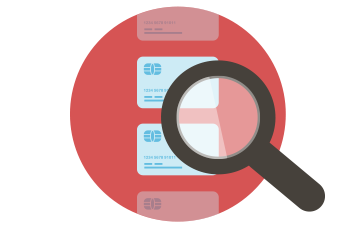FAQ
1.What types of business do you accept?
We accept all type of businesses that are well documented with a handsome transaction history in all
competitive industries.
2.How long does it take to get approved?
It takes 24-48 hours. Set up and Launch will be immediate upon approval.
3.What are the advantages of accepting credit cards online?
Accepting credit cards for your business will boost your sales. It will show customers that your
business is reliable and trustworthy to be a legitimate business.
4.What if I have bad credit?
We approve accounts regardless of credit history. We have the highest approval rate in the
industry.
5.Do I need a bank account to accept credit cards and does it have to be a business checking
account?
You will need a bank account and a business account so you can receive funds from your
customers.
6.What is a charge back?
Charge back is when a customer receives their credit card statement and does not accept the
charges applied. They can call their bank and concern a charge back against the charge.
7.How do I avoid charge backs?
The best way is to have a business checking account. Make your business the same as the name on
the site.
8.What are my requirements to open a merchant account with SkyCreditPay GATEWAY?
Contact us and our Sales agent will work with you along the way for the required records from
you to accomplishments of forms to facilitate your application.
9.How will I receive my money?
The sales will be deposited directly into your depository business account.
.


KNOWLEDGE
- 3–D Secure:
An XML-based protocol used to better authenticate online credit card and debit card transactions. The protocol ties the financial authorization of the transaction to an online authentication of the cardholder’s identity. The authentication is based on a three domain model: the Acquirer Domain (the Acquiring bank and the merchant that are charging the card), the Issuer Domain (the Issuing bank of the cardholder), and the Interoperability Domain (the system provided by the Card Association to support the protocol). Hence 3-D. A transaction using 3-D Secure redirects to the website of the cardholder’s Issuing bank to authorize the transaction. The Issuing bank authenticates the cardholder’s identity by requiring the entry of a password tied to the credit card. Visa offers the protocol under the name Verified by Visa, MasterCard as MasterCard SecureCode, and JCB International as J/Secure. - Acquiring Bank:
A card association member bank or financial institution that accepts credit card payments on behalf of a merchant. Also referred to as an Acquirer because the member bank accepts or acquires payments from credit cards that are issued by other member banks (Issuing banks or Issuers). - Address Verification System:
A system that verifies the numeric portions of a cardholder’s billing address. Also called AVS. The numbers in the street address and the zip code are compared to the street address and zip code on file with the cardholders issuing bank. AVS can return a variety of responses that are organized into AVS Codes. For example, Visa AVS Code Y means that the street address and the 5 digit zip code provided match what the issuer has on file. Visa AVS Code X means the street address and the 9 digit zip code provided match, while Code Z means the street address does not match but the 5 digit zip does, and Code R means the system is unavailable. In declines due to AVS failure, the authorization will stay on the cardholder’s account until the issuing bank removes it. Sometimes the authorization amount may be subtracted from the cardholder’s available balance and an online statement may show the held funds as an actual charge. These authorizations can remain on a cardholder’s account for up to 7 days or more. For this reason, merchants should avoid using $1.00 charges to verify accounts, and instead use AVS only authorizations. - API Gateway:
A point-of-sale system used to accept electronic payments on a website. API stands for Application Programming Interface. This is a set of protocols provided in order to build applications. Gateway is short for Payment Gateway. The term API is commonly used to distinguish this type of point-of-sale from other Payment Gateways, like a Secure Payment Page, the difference being that the API allows the Gateway to interface with the merchant’s shopping cart software and this allows the transaction to take place within the shopping cart and without the cardholder having to leave the merchant’s website to pay. - Card Not Present:
A credit card transaction when the card is not swiped through a point-of-sale terminal and the merchant does not obtain a sales draft signed by the cardholder. Also referred to as CNP, keyed, or MoTo, for Mail Order / Telephone Order. Transactions through an internet or ecommerce merchant account are considered to be Card Not Present. Merchant service providers charge higher rates and fees for Card Not Present credit card processing because the transactions are assumed to carry a higher risk of chargeback for fraud or cardholder dissatisfaction. There is higher risk of fraud because in the Card Not Present environment it is more difficult to connect the cardholder to the sale. When the card is swiped and a sales draft is signed, it is easier for the merchant to validate that the card and the cardholder were present at the time of the sale and that the cardholder did in fact authorize the purchase. There is a higher risk of cardholder disputes for dissatisfaction with the merchant’s product or service because when the cardholder is signing a sales draft and leaving with the product in hand, they are less able to hold the merchant liable for deceptive practices or failure to make delivery. - Chargeback:
A return of funds by the cardholder’s issuing bank. It reverses a previous authorization and settlement of funds from a cardholder’s line of credit or bank account balance. US Federal Reserve Regulations afford this right of reversal to US credit card and debit cardholders. Card Association and bank network rules also provide this right to cardholders in the United States and internationally. Cardholders can initiate chargebacks for a variety of reasons: fraudulent use of the card, unauthorized use, unauthorized or unrecognized charges, failure to deliver, dissatisfaction with products or services, and for an extended period of time after the sale, from 3 months to 2 years.
Accept Credit Card Payments Online
If you need to open a credit card online payment service or get more payment methods, please contact us without hesitation. We will provide you with the most convenient and caring service.